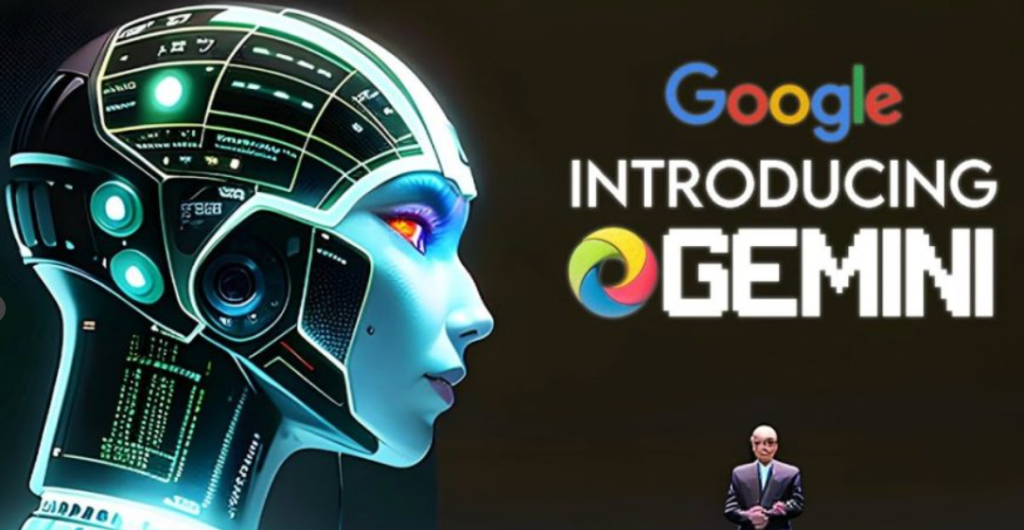Google Unveils Gemini, Its Highly Awaited Massive Language Model
Google has officially introduced Gemini, its much-anticipated large language model (LLM) designed to compete with GPT-4. As of now, users worldwide of Google Bard and the Pixel 8 Pro can leverage Gemini, while an enterprise-oriented variant, Gemini Pro, is slated for release on December 13. Developers have the opportunity to sign up for an early preview through Android AICore.
Key Points about Gemini:

1. Purpose and Features:
Gemini is a robust language model with applications in generative artificial intelligence, excelling at tasks such as text summarization, image creation, and question answering. Trained on Google’s Tensor Processing Units v4 and v5e, it boasts advanced reasoning, planning, and understanding capabilities. Google Bard, a generative AI based on the PaLM large language model, will now benefit from Gemini’s enhanced functionalities.
2. Model Sizes:
Gemini comes in three sizes: Ultra, Pro, and Nano. Ultra is the most powerful, Nano is the most efficient, and Pro strikes a balance for general tasks. Google plans to conduct thorough trust and safety checks before releasing Gemini Ultra to select groups. The Nano version powers the Pixel, while Bard utilizes the Pro version.
3. Coding Abilities:
Gemini exhibits coding proficiency in languages like Python, Java, C++, and Go. It played a role in upgrading Google’s AI-powered code generation system, AlphaCode.
4. Integration with Google Products:
Gemini is set to be integrated into various Google products, including Ads, Chrome, Duet AI, and eventually Google Search.
5. Competition:
Gemini competes with other large language models like OpenAI’s GPT-4, Microsoft’s Copilot, Anthropic’s Claude AI, Meta’s Llama 2, among others. Google asserts that Gemini Ultra outperforms GPT-4 in several benchmarks.
Enterprise Focus:
1. Gemini Pro and API:
Enterprise users and developers can access Gemini Pro through the Gemini API in Google’s Vertex AI or Google AI Studio, starting December 13.
2. Use Cases:
Gemini’s ability to understand and reason about users’ intent makes it particularly relevant for enterprise use cases. It generates a customized user interface based on user queries, seeking clarification in areas with insufficient information. Gemini has been trained on multimodal content from the beginning, allowing it to handle text, video, speech, and code with equal proficiency.
3. Availability:
Gemini Nano is expected to be generally available for developers and enterprise customers in early 2024. Android developers can utilize this large language model to build on-device Gemini apps through AndroidAICore.
Timing and Advantages:
Google’s release of Gemini follows persistent rumors and aims to compete with OpenAI. Despite challenges in launching in languages other than English, Google has managed to position Gemini advantageously. With its multimodal capabilities and integration into the Pixel 8, users can access Gemini offline, giving Google a leap ahead in AI development compared to ChatGPT.
